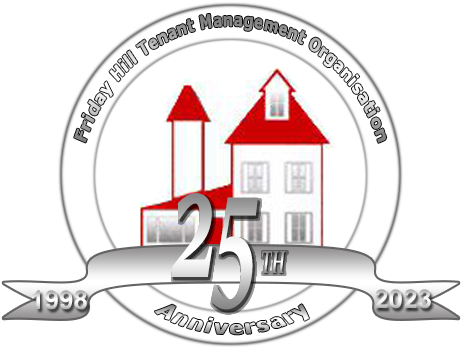Friday Hill TMO carries out most Housing functions which would have been provided by the Housing Department within London Borough of Waltham Forest.
Repairs
All routine property repairs are carried out by Contractors employed directly by Friday Hill TMO. FHTMO also employs a Sureyor 3 days a week and Graham can be e-mailed graham@fridayhilltmo.org.uk
Rent Income
FHTMO is responsible for the collection of rent arrears to the tenanted properties which come under our Management. The TMO is also able to give advice on Welfare Benefits. FHTMO is also responsible for the collection of Former Tenant Arrears and the garage arrears of the 100 garages which come under our Management. Friday Hill TMO’s income officer is Amanda Edwards and can be e-mailed amanda@fridayhilltmo.org.uk
Tenancy Management
Estate Services
Friday Hill TMO have been responsible for the caretaking service since November 1998 and the Grounds Maintenance from 2000. The service is currently carried out in-house and is managed by Sharon. Sharon can be e-mailed sharon@fridayhilltmo.org.uk
Anti-Social Behaviour
